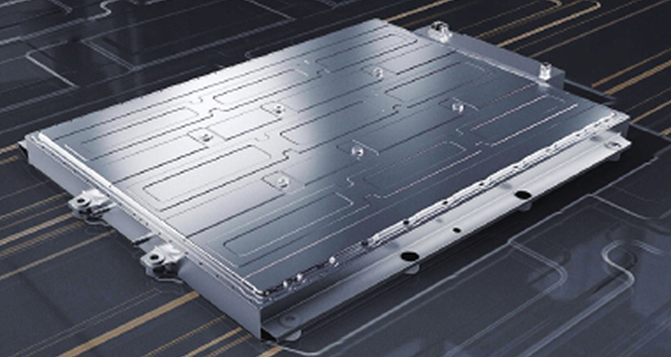
The European electric vehicle industry is facing multiple challenges, and the pressure brought by factors such as US tax increases has not yet eased. There is also unsettling news. After the bankruptcy of Swedish battery manufacturer Northvolt, German power battery manufacturer Customs Cells also announced bankruptcy, undoubtedly casting a shadow over the development of the European power battery industry.
Why are Customs Cells heading towards bankruptcy?
Customs Cells was founded in 2012 as a power battery technology company incubated by the Fraunhofer Society in Germany, focusing on high-performance battery technology. The company has production bases in Itzejo and T ü bingen, Germany, with over 200 employees. However, these employees are now facing the risk of unemployment. The company has announced its bankruptcy application at the staff meeting and explained the follow-up steps.
The CEO of Customs Cells stated that despite having excellent products and good business development, the company had to make this difficult decision due to uncontrollable external factors. He thanks his employees, customers, investors, and partners for their support during difficult times.
As a power battery company with a 13 year history, Customs Cells has focused on high-performance customized lithium-ion batteries, serving the fields of electric vehicles, flying cars, industrial equipment, and aviation. Its core technologies include silicon-based anode materials and the development of high-energy density batteries, and have provided customized solutions for major clients such as Porsche, Siemens, and BMW. In 2022, the company also plans to build a dedicated battery factory for automobiles and flying cars, with the goal of covering emerging markets such as eVTOL.
The deep-rooted reasons for enterprises heading towards bankruptcy
The bankruptcy of Customs Cells is thought-provoking. Although it conforms to the trend of electrification, a series of difficulties behind it have never been overcome. In 2024, German equipment manufacturer Manz AG fell into bankruptcy restructuring due to the shrinking European battery market and a sharp decline in orders, resulting in a cumulative loss of over 88 million euros, causing Customs Cells to lose important financial support. At the same time, Porsche cancelled the expansion plan of its joint venture Cellforce and cut off its core order source due to lower than expected electric vehicle sales.
The sudden change in market demand has also had a huge impact on Customs Cells. In 2024, the demand for power battery cells in the European market will significantly decline, and car companies will postpone their electrification investment plans. Customs Cells' new production capacity will be idle due to a lack of orders. In addition, the delayed airworthiness certification and delayed commercialization progress of its customer Lilium's flying car batteries have resulted in the inability to convert research and development investment into revenue, and cash flow disruption has become a direct cause of bankruptcy.
Technological bottlenecks, intensified competition, and strategic imbalances are also important reasons for the bankruptcy of Customs Cells. The company has a single customer structure, overly relying on major customers such as Porsche, and has not formed a diversified market layout. When large customer orders decrease, the company lacks buffer space. At the same time, facing the capacity expansion of European domestic manufacturers such as Northvolt and the technological penetration of international giants, Customs Cells is gradually falling behind in scale production and cost control, and the customized route is difficult to share the high research and development costs.
Warning of mismatch between technology and market
There is a serious mismatch between the technology development and market implementation of Customs Cells. The company has invested heavily in cutting-edge technologies such as silicon-based anodes and solid-state batteries, but the production progress lags behind market expectations. For example, the 400Wh/kg aviation grade flying car battery originally planned for mass production in 2024 has been delayed due to failed safety tests, while competitors have already launched similar products, and technological advantages have not been transformed into market barriers.
Analysis suggests that one of the main reasons for Customs Cells' bankruptcy is the bankruptcy of its largest customer Lilium. Lilium failed to pay over 100 million euros in accounts, leading to financial difficulties for Customs Cells. Meanwhile, the intensifying competition in the power battery industry has also brought tremendous pressure to the company's operations.
Lessons Learned from the Bankruptcy of Customs Cells
The bankruptcy of Customs Cells has brought three major warnings to the industry:
Build a diversified customer base: avoid over reliance on one or two major clients and diversify risks.
Pay attention to the balance between technology and commercialization: cutting-edge technology research and development needs to match market maturity, avoiding the trap of "technology ahead of demand".
Optimize the funding chain and production capacity planning: flexibly adjust the expansion pace based on market feedback, and establish multi-channel financing guarantees.
The bankruptcy of Customs Cells is not only the end of the company itself, but also a profound warning to the European high-end manufacturing industry in the context of accelerated electrification transformation. How to balance innovation investment and risk control in the current era of accelerated technological iteration and intense market competition
The niche market and economies of scale are survival and development issues that all technology-based enterprises must face.

